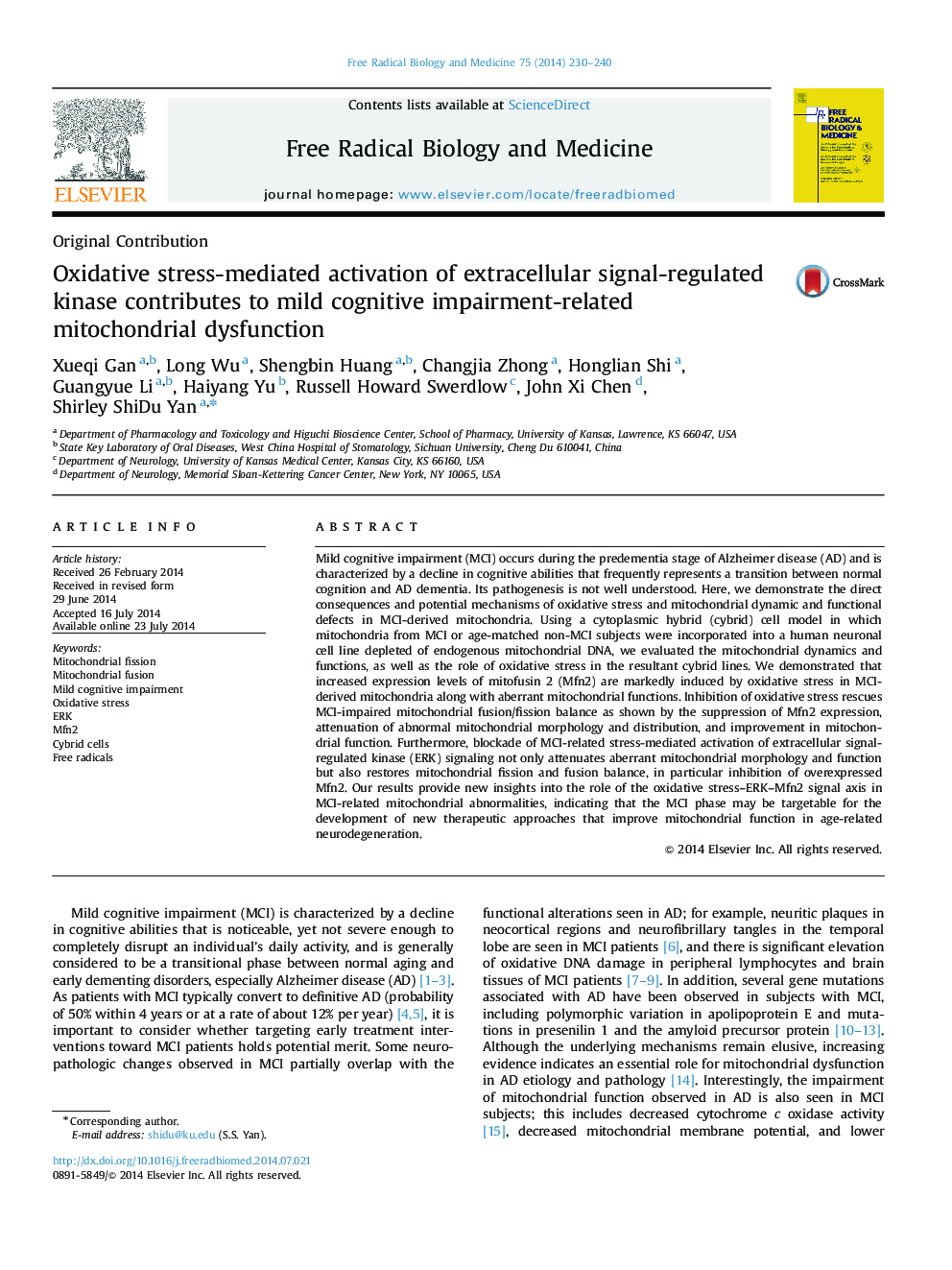| Article ID | Journal | Published Year | Pages | File Type |
|---|---|---|---|---|
| 8270052 | Free Radical Biology and Medicine | 2014 | 11 Pages |
Abstract
Mild cognitive impairment (MCI) occurs during the predementia stage of Alzheimer disease (AD) and is characterized by a decline in cognitive abilities that frequently represents a transition between normal cognition and AD dementia. Its pathogenesis is not well understood. Here, we demonstrate the direct consequences and potential mechanisms of oxidative stress and mitochondrial dynamic and functional defects in MCI-derived mitochondria. Using a cytoplasmic hybrid (cybrid) cell model in which mitochondria from MCI or age-matched non-MCI subjects were incorporated into a human neuronal cell line depleted of endogenous mitochondrial DNA, we evaluated the mitochondrial dynamics and functions, as well as the role of oxidative stress in the resultant cybrid lines. We demonstrated that increased expression levels of mitofusin 2 (Mfn2) are markedly induced by oxidative stress in MCI-derived mitochondria along with aberrant mitochondrial functions. Inhibition of oxidative stress rescues MCI-impaired mitochondrial fusion/fission balance as shown by the suppression of Mfn2 expression, attenuation of abnormal mitochondrial morphology and distribution, and improvement in mitochondrial function. Furthermore, blockade of MCI-related stress-mediated activation of extracellular signal-regulated kinase (ERK) signaling not only attenuates aberrant mitochondrial morphology and function but also restores mitochondrial fission and fusion balance, in particular inhibition of overexpressed Mfn2. Our results provide new insights into the role of the oxidative stress-ERK-Mfn2 signal axis in MCI-related mitochondrial abnormalities, indicating that the MCI phase may be targetable for the development of new therapeutic approaches that improve mitochondrial function in age-related neurodegeneration.
Keywords
Related Topics
Life Sciences
Biochemistry, Genetics and Molecular Biology
Ageing
Authors
Xueqi Gan, Long Wu, Shengbin Huang, Changjia Zhong, Honglian Shi, Guangyue Li, Haiyang Yu, Russell Howard Swerdlow, John Xi Chen, Shirley ShiDu Yan,
